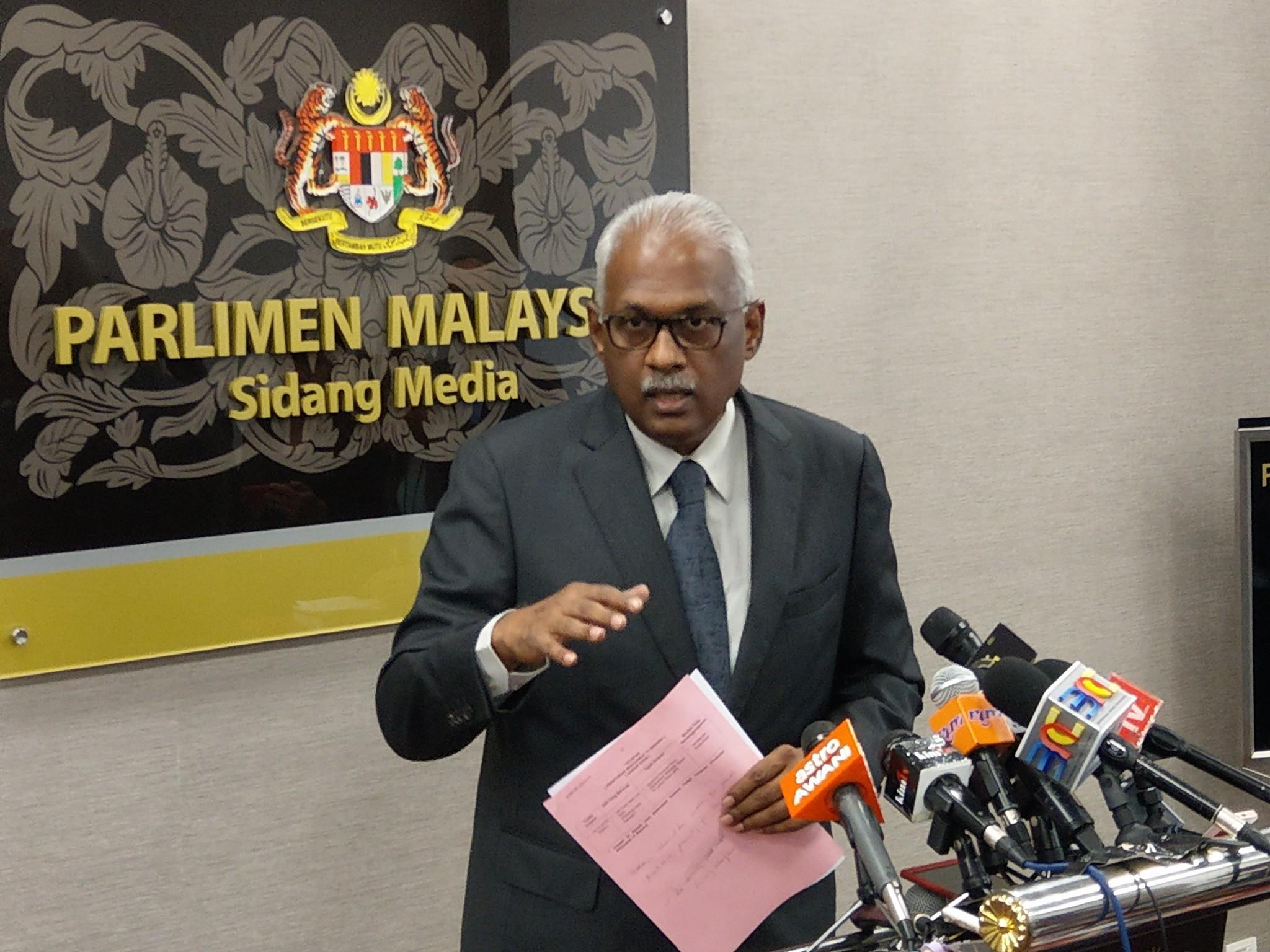KUALA LUMPUR, July 29 — Klang MP Charles Santiago has urged the government to use compulsory licencing to obtain generics of remdesivir, a frontrunner experimental Covid-19 treatment, without the drug maker’s consent.
The DAP lawmaker said the Malaysian public would not be able to afford remdesivir, an antiviral drug which is being charged at US$390 (RM1,656) per vial by American pharmaceutical company Gilead Sciences for governments of developed countries, totalling US$2,340 (RM9,938) per patient. Most Covid-19 patients are expected to require six vials for their care.
Malaysia is classified by the World Bank as an upper middle-income country.
“I ask the Ministry of Health (MOH) to use compulsory licensing to import generics of remdesivir with an appropriate cost to resolve Covid-19 for the sake of the Malaysian people, especially the poor,” Charles told the Dewan Rakyat Monday while debating the King’s Speech.
He described Gilead’s remdesivir pricing as “unreasonable”, citing a report by Public Citizen, a nonprofit consumer advocacy group in the United States, that said the cost of clinical testing for remdesivir was borne by the US National Institute of Allergy and Infectious Diseases.
“In other words, the development of this vaccine was subsidised from taxpayers’ money. The actual cost of manufacturing remdesivir is US$1 for one small bottle. This means that the cost of the entire treatment is not more than US$5,” Charles claimed.
“Gilead Sciences’ potential profit from selling remdesivir this year, this year alone, is US$2.3 billion.”
Last July 10, CNBC reported Gilead’s new findings that remdesivir cut the risk of death for severely ill Covid-19 patients by 62 per cent compared with standard care alone, according to data from 312 patients enrolled in its Phase 3 trial. Gilead had compared the data to 818 patients in “a real-world retrospective cohort” with similar traits and disease severity who received standard care alone at the same time as participants in the Phase 3 trial.
Back in late April, the US National Institute of Allergy and Infectious Diseases found that hospitalised patients with advanced Covid-19 who received remdesivir recovered in about 11 days, four days faster than those who didn’t take the drug. But its clinical trial did not find any statistically significant reduction in the risk of death for coronavirus patients on remdesivir.
Gilead has excluded Malaysia from receiving remdesivir in recent deals signed with five generic companies in India and Pakistan to manufacture and distribute the experimental antiviral drug to 127 nations, mostly low-income and lower-middle income countries.
Under these non-exclusive voluntary licencing agreements, the five generic companies can set their own prices without paying royalties to Gilead until the World Health Organization (WHO) declares an end to the novel coronavirus public health emergency, or until another medicine or vaccine is approved to treat or prevent Covid-19.
This comes after Malaysia previously used a compulsory licence for another Gilead drug, Sovaldi (sofosbuvir), in 2017 after rejecting the California biotech company’s voluntary licence offer for the breakthrough Hepatitis C cure. Voluntary licences are an agreement between originator and generic manufacturers that allows the production and sale of patented drugs in certain countries, subject to licensing terms.
Charles urged Putrajaya to extend compulsory licencing for sofosbuvir as the three-year term for the government-use licence is set to end this October.
He noted that Malaysia’s use of the compulsory licence to purchase generic versions of sofosbuvir from Egypt has reduced the drug price from RM324,000 to RM1,248. Half a million Malaysians are estimated to have Hepatitis C, a viral infection that can lead to liver cirrhosis, cancer, and death.
“Now, many Malaysians can be treated.”
Despite the huge price reduction, the Ministry of Health (MOH) revealed last November that a mere 0.9 per cent of an estimated half a million Malaysians with Hepatitis C, or 4,500 people, have been treated with generics. Hepatitis C is a viral infection that can lead to liver cirrhosis, cancer, and death.
Last February, the Pharmaceutical Research and Manufacturers of America, which represents US pharmaceutical research companies, urged the US Trade Representative to designate Malaysia a “Priority Foreign Country” for denying sufficient protection of US intellectual property rights, citing Malaysia’s use of the compulsory licence on sofosbuvir.
Washington think tank Information Technology and Innovation Foundation (ITIF) previously told CodeBlue that new medicines may only be sold here five years after their US launch if Malaysia continues breaching drug makers’ intellectual property rights.








